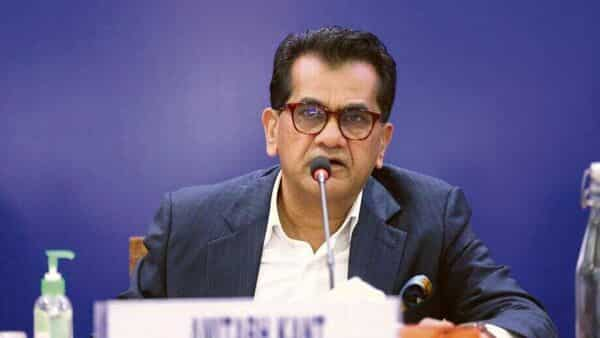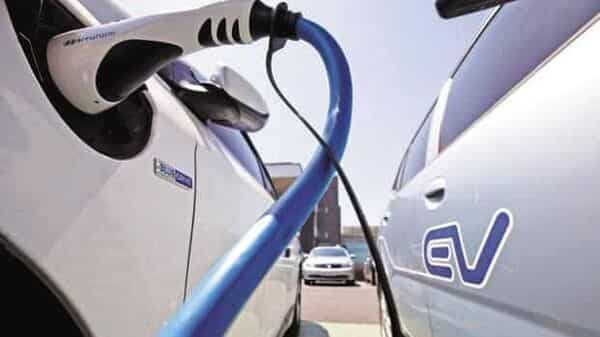[ad_1]
What went behind getting a consensus on the G20 Bali communique and the role played by India regarding Russia?
During the Indonesian presidency, there was the Russia-Ukraine geopolitical crisis. And it was broadly expected that a communique would not be arrived at the leaders’ summit. The draft which was brought before us heavily condemned the present geopolitical scenario. India’s view was that G20 is not a political body. Political issues need to be settled in the UN Security Council. G20 is essentially a body for economic growth, progress, social development agenda, climate, and many other things. So, the communique should be action-oriented towards many of the crises the world is facing in terms of global debt, breakdown of global supply chain, greater action on sustainable development goals (SDGs), greater action on climate, and also on the post-covid recovery. But the view of G7 was that the (Russia-Ukraine) war has many other implications—on fuel, fertilizer, food, and therefore, this issue cuts across economic issues as well and therefore it’s necessary to have a very strong condemnation of Russia. India took the lead and brought Brazil, South Africa, Argentina, Mexico, Saudi Arabia, and Singapore together to argue that we should not create a political document. And G20 on its own instead of politically condemning should actually work around the language used by the Security Council and therefore, on our insistence, we redrafted the agreement taking into consideration the UN resolution.
With even the US taking note of India’s efforts in negotiating the consensus, does it elevate India’s role at the global level in bringing up emerging market issues?
The final communique had a huge influence of India and to my mind, India played a very constructive and positive role, a progressive and a promising role of bringing all the emerging markets together. And that enabled India to ensure that the communique was agreed upon. And it was not merely accepted by the G7 but it was also accepted by Russia and later by China. So, everybody arrived at a consensus. This was done after five days of hectic negotiations from the morning to night, and the final communique is very heavily loaded in favour of economic growth in terms of specific action and many other issues concerning the emerging markets.
Would it be fair to say that G7 accommodated the view of the larger G20?
The G7 realized that this is not a G7 body, but the G20. It comprises both developed countries and emerging markets; so, this cannot be a statement of G7. It has to take into consideration the views of the emerging markets also. And therefore, G7 also came around to the conclusion that we don’t need a scenario where there’s a split down the middle in G20. But everybody needs to work together; we were able to convince them; therefore, we were able to do that.
Now that India is going to take up the G20 presidency, what are the key challenges that you foresee during India’s presidency?
The important thing to understand is that by the time India takes over the presidency, there will be a looming crisis of slowdown of growth and recession in several parts of the world. So, inclusive and resilient growth will have to be a critical priority for the world. There’s been a huge impact of covid-19. About 200 million people have been impacted and they’ve gone below the poverty line. About 75 million people have lost their jobs. We are midway through the 2030 agenda. And instead of progressing, we have regressed, and therefore, it is necessary that we are able to accelerate the pace of the 2030 agenda, particularly the Sustainable Development Goals. Now, that will be key and this will require the G20 to discuss, accelerate, work out the specific financial requirements etc. Thirdly, while the broad goal of 1.5 degrees centigrade and climate action has been accepted and the developed world had committed to $100 billion per year in 2009 in Copenhagen—reiterated at COP 21 and COP 26—the developed world has not lived up to its commitment. So, climate action and climate finance will have to be a priority.
What are some of the key issues that India is planning to include in the issue note to be circulated to the member countries?
The prime minister has talked extensively at length about the digital transformation which is being carried out and how that needs to be brought to centre stage. That’s important because vast segments of the population in the world still do not have digital identity. Almost 2 billion people do not have bank accounts and a vast segment of countries—over 130 countries—do not have fast payment mechanisms. That’s a unique Indian narrative. And on the health side, there’s a huge Indian narrative about the unique model of health we have created, about being the vaccine capital. Lastly, Prime Minister in his Bali speech also talked about women-led development. As far as financial inclusion is concerned, when we started Jan Dhan Yojana, about 19% of the accounts belonged to women; today, that has gone up to 56%. So, it is about how we can use women leadership and entrepreneurship to drive the growth agenda. So, these are the broad priorities. We will circulate our issue notes to see how things work out and as it is a consensus building process, we will have to take everybody along.
Will there be some unique Indian initiatives that will make it to the G20 agenda?
There are two major initiatives which India is taking. One is to form a working group on disaster risk and resilience, and the other is an engagement group on Startup 20. These are unique Indian initiatives. So, we are building up consensus on these. India has done some phenomenal work on startups. When we started the Startup India movement, there were just about 200-odd startups. Today we have 80,000 plus startups and 106 unicorns so we are going to use this to see how the startup movement can be accelerated among G20 and the world. One more thing that the prime minister has spoken about is multilateral reforms in institutions like International Monetary Fund and World Bank. They do direct lending, while there is a need for many of these institutions to do credit enhancement, do blended finance, to do first-loss guarantees, which will enable them to do 10 times more lending.
What do we intend to project or gain from the Startup 20 engagement group? How will that take India’s story forward?
So far, the developed world was setting the agenda, we were reacting to that agenda. Now India is setting the agenda. We have got an opportunity to set the agenda on which others will react. What India has done in digital transformation (for instance).
Mostly digital innovations happen from the developed part of the world. This is the first time that a unique model has been created by the developing part of the world. And this is a model where we do 7x more payments than the US and Europe, we do 3x more payments than China does.
So this is really an opportunity to demonstrate whether India’s unique model of digital public infrastructure can be taken to the rest of the world.
Download The Mint News App to get Daily Market Updates & Live Business News.
[ad_2]
Source link
John Miller has been writing about science, gaming, and tech culture for over a decade. He’s a top-rated reviewer with extensive experience helping people find the best deals on tech and more.


